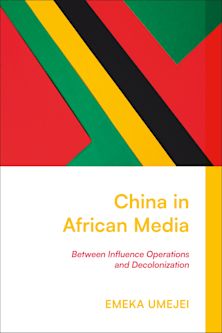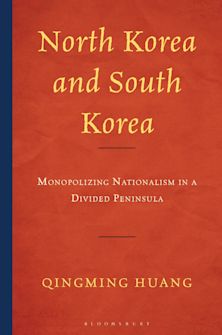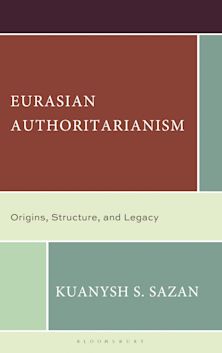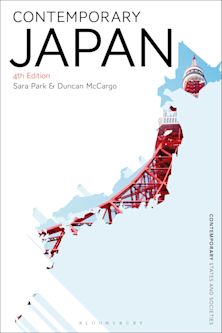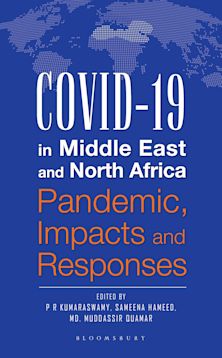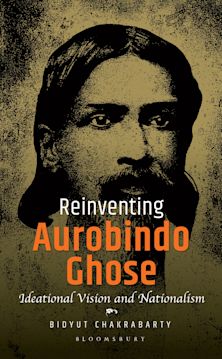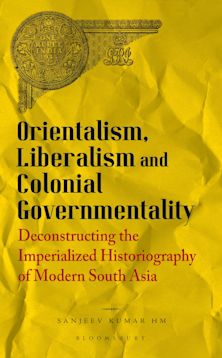- Home
- ACADEMIC
- Asia Studies
- Asian Politics, Government and International Relations
- State Formation and Conflicts in Sri Lanka
You must sign in to add this item to your wishlist. Please sign in or create an account
Description
This book explores how the history of postcolonial Sri Lanka suggests a new paradigm for understanding state-formation as an ever-shifting and evolving process.
The Sri Lankan state has formed under the pressure of multiple conflicts: around capitalist transition on the one hand, and the deteriorating relationship between the state and Tamil minority populations on the other. Sunil Bastian demonstrates the way these conflicts have overlapped, with international support for the introduction of neoliberal policies – from Japan, the West and institutions such as the World Bank and the IMF – helping to prop up a state engaged in armed ethnic conflict. State Formation and Conflict in Sri Lanka explores the role played by these two forces in the nation's recent economic crises.
Table of Contents
Chapter 1: British Colonialism and State Formation
Chapter 2: Post-Colonial State Formation
Chapter 3: From Liberalization of the Economy to Negotiations through International Mediation
Chapter 4: Negotiations, their Collapse, and Rajapakse Coming to Power
Chapter 5: Post-War State
Bibliography
Product details

| Published | 23 Jan 2025 |
|---|---|
| Format | Ebook (Epub & Mobi) |
| Edition | 1st |
| Extent | 200 |
| ISBN | 9781350451834 |
| Imprint | Bloomsbury Academic |
| Publisher | Bloomsbury Publishing |
About the contributors
Reviews
-
In this new book, Sunil Bastian continues his commitment to studying Sri Lanka's economy, politics and the state through the interpretative lens of political economy. The book thematic focus is the process of state formation in Sri Lanka during the late colonial and post-colonial phases. Building on the premise that states and societies are products of the historical processes that are set in motion by capitalism, Bastian analyses the continuities and ruptures of Sri Lanka's post-colonial state. The ruptures are caused by the impact of the global capitalism with which Sri Lanka's society is closely integrated. Sri Lanka's protracted conflict processes too are structured by capitalism and its discontents. This is a book that has an immediate appeal to a wide range of readers – scholars, students, policy makers and social-political activists. It also makes a significant contribution to the scholarship on the political economy of state formation in non-Western societies that enmeshed with global capitalism.
Jayadeva Uyangoda, Emeritus Professor of Political Science, University of Colombo, Sri Lanka
-
This important book explores and explains Sri Lanka's long running conflict and post war transition through the prism of state-society relations. In doing so it masterfully brings together the ways in which the changing international environment has interacted with, and shaped Sri Lanka's shifting domestic political economy. The conflict, and the post war transition, are presented as episodes in a much longer story about Sri Lanka's convoluted and conflictual history of state building – a story that is still playing out today, and with very uncertain outcomes.
Jonathan Goodhand, Prof in Conflict and Development Studies, SOAS, University of London

ONLINE RESOURCES
Bloomsbury Collections
This book is available on Bloomsbury Collections where your library has access.












